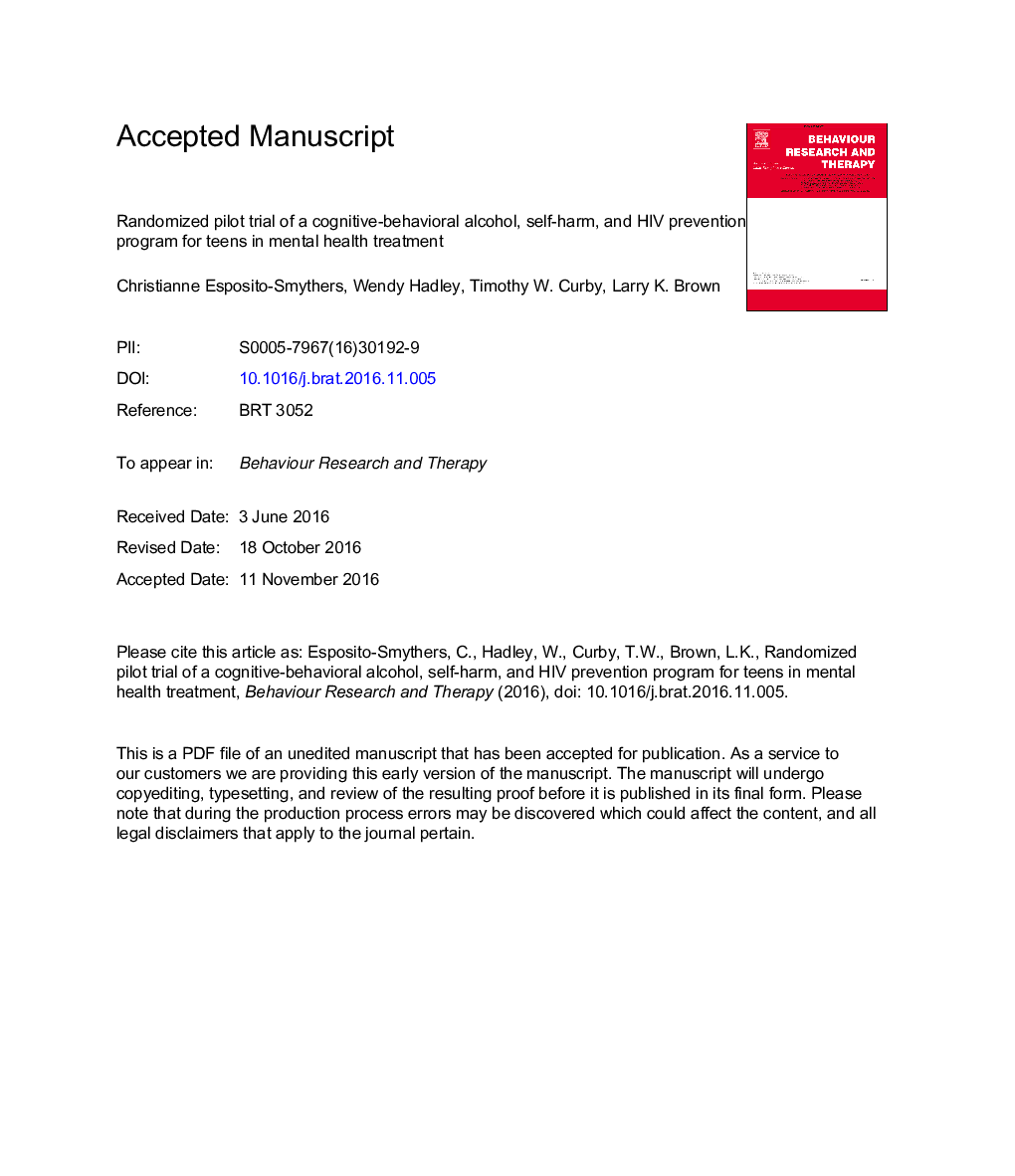| Article ID | Journal | Published Year | Pages | File Type |
|---|---|---|---|---|
| 5038326 | Behaviour Research and Therapy | 2017 | 30 Pages |
Abstract
Adolescents with mental health conditions represent a high-risk group for substance use, deliberate self-harm (DSH), and risky sexual behavior. Mental health treatment does not uniformly decrease these risks. Effective prevention efforts are needed to offset the developmental trajectory from mental health problems to these behaviors. This study tested an adjunctive cognitive-behavioral family-based alcohol, DSH, and HIV prevention program (ASH-P) for adolescents in mental healthcare. A two group randomized design was used to compare ASH-P to an assessment only control (AO-C). Participants included 81 adolescents and a parent. Assessments were completed at pre-intervention as well as 1, 6, and 12-months post-enrollment, and included measures of family-based mechanisms and high-risk behaviors. ASH-P relative to AO-C was associated with greater improvements in most family process variables (perceptions of communication and parental disapproval of alcohol use and sexual behavior) as well as less DSH and greater refusal of sex to avoid a sexually transmitted infection. It also had a moderate (but non-significant) effect on odds of binge drinking. No differences were found in suicidal ideation, alcohol use, or sexual intercourse. ASH-P showed initial promise in preventing multiple high-risk behaviors. Further testing of prevention protocols that target multiple high-risk behaviors in clinical samples is warranted.
Keywords
Related Topics
Health Sciences
Medicine and Dentistry
Psychiatry and Mental Health
Authors
Christianne Esposito-Smythers, Wendy Hadley, Timothy W. Curby, Larry K. Brown,
